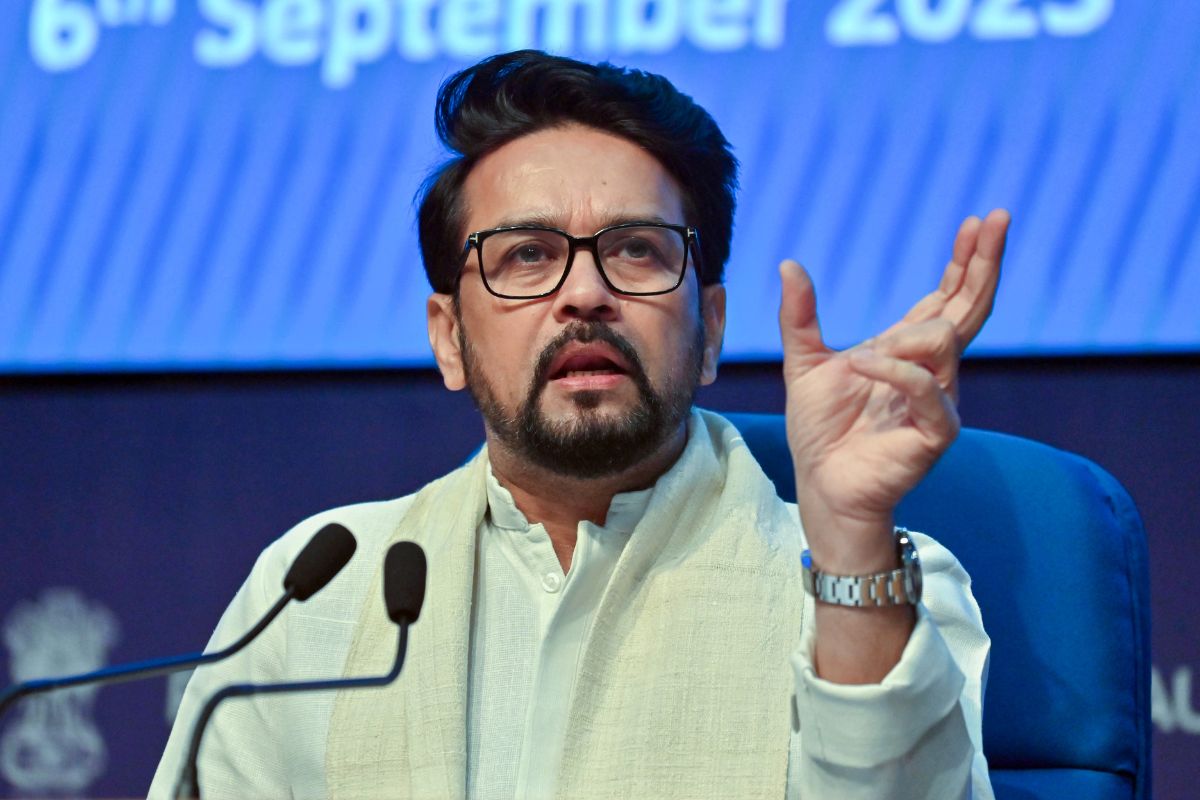Cabinet nod to announce JOA (IT) results in Himachal
The nod was given during the state Cabinet meeting held here on Wednesday that approved the recommendations of the Cabinet Sub Committee constituted to decide selection of JOA (IT) Code-817.
Briefing newspersons, Information and Broadcasting Minister Anurag Thakur said the Government is committed not to allow rising fertilisers prices in international market to impact farmers in the country.

Union I&B Minister Anurag Thakur
In a decision to protect farmers from rising fertilisers prices abroad, the Central Government on Wednesday approved revised Nutrient Based Subsidy (NBS) rates for Phosphatic and Potassic (P&K) fertilisers for Rabi Season, 2023-24, applicable from 1st October, 2023 to 31st March, 2024.
The decision was taken at a meeting of the Union Cabinet chaired by Prime Minister Narendra Modi.
Briefing newspersons, Information and Broadcasting Minister Anurag Thakur said the Government is committed not to allow rising fertilisers prices in international market to impact farmers in the country.
Advertisement
The new rates will involve an expenditure of Rs 22,303 crore during the Rabi season. Since 2021, the government has fixed the rates in a way as they do not come under any impact from international prices, he said.
He said the farmer-friendly government has helped the farmers earlier also. Neither any shortages were allowed to take place in fertilisers or urea, nor any increase was allowed in the domestic prices, he said.
To ensure the availability of fertilisers to farmers at subsidized, affordable and reasonable prices, DAP will be sold with an additional subsidy of Rs 45 per tonne, and its old rate of Rs 1350 per bag will continue. NPK will be sold at Rs 1470 per bag and SSP’s old rate Rs 500 will continue.
Thakur said not a Rupee more will be payable by the farmers. MOP’s rate will be lowered from its present rate of Rs 1700 to Rs 1655 per bag.
Thakur said freight subsidy will continue on SSP. The Government under PM Modi has one again taken decisions for the welfare of farmers to keep cost under control, stable urea prices, and to ensure production goes up.
The Government has been making available 25 grades of P&K fertilisers to farmers at subsidized prices through fertiliser manufacturers and importers.
The subsidy on P&K fertilisers is governed by NBS Scheme effective from 1st April, 2010. The subsidy is provided to fertiliser companies as per approved and notified rates so that fertilizers are made available to farmers at affordable prices.
Mr Thakur said the government, in another decision to benefit the farmers, approved inclusion of Jamrani Dam Multipurpose Project of Uttarakhand under the Pradhan Mantri Krishi Sinchayee Yojana-Accelerated Irrigation Benefit Programme (PMKSY-AIBP) of the Department of Water Resources, River Development and Ganga Rejuvenation.
He said the decision was taken by the Cabinet Committee on Economic Affairs (CCEA) chaired by the Prime Minister, which approved a Central support of Rs 1,557.18 crore to Uttarakhand for completion of the project, with an estimated cost of Rs 2,584.10 crore by March, 2028.
The project envisages construction of a dam near Jamrani village across river Gola, a tributary of river Ram Ganga, in Nainital district of Uttarakhand. The dam will feed the existing Gola barrage, through its 40.5 km length of canal system and 244 km long canal system, which was completed in 1981.
The project will benefit farmers as it envisages additional irrigation of 57,065 hectares of land (9,458 hectares in Uttarakhand and 47,607 hectares in Uttar Pradesh) in Nainital and Udham Singh Nagar districts of Uttarakhand, and Rampur and Bareilly districts in Uttar Pradesh.
Apart from construction of two new feeder canals, 207 km of existing canals are to be renovated and 278 km pucca field channels are also to be taken up under the project. In addition, the project also envisages hydro power generation of 14 MW, as well as provision of 42.70 million cubic metre (MCM) of drinking water to Haldwani and nearby areas benefiting more than 10.65 lakh population.
A substantial part of irrigation benefits of the project will flow to the neighbouring state of Uttar Pradesh, and cost/benefit sharing between the two States is to be done as per an MoU signed in 2017. However, drinking water and power benefits shall be available entirely to Uttarakhand.
Advertisement